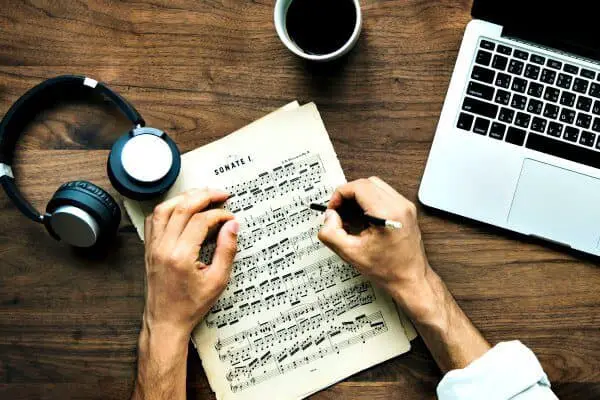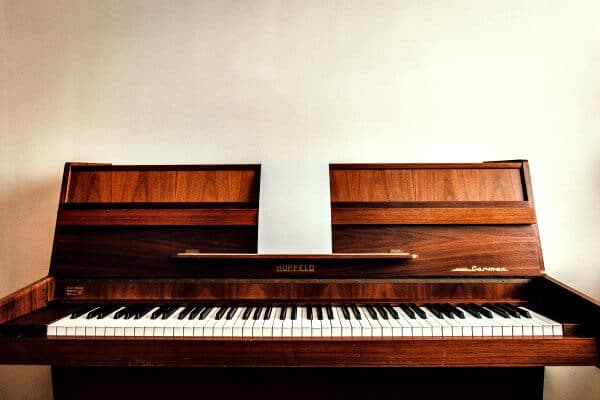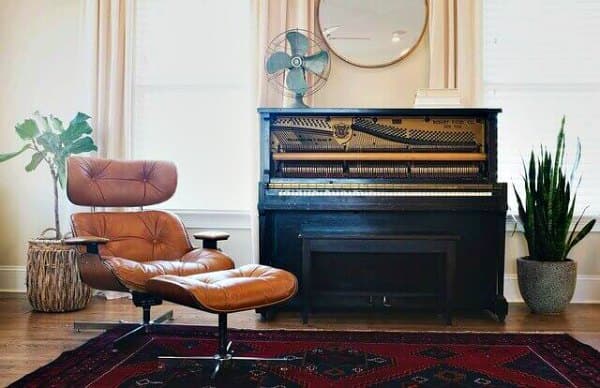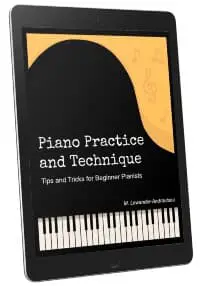- Home
- Learn to Play Piano
- How to Learn the Piano
How to Learn the Piano On Your Own
This article may contain compensated links. Please read the disclosure for more info.
How to learn the piano on your own, is that even possible? Here is a look at the three most important aspects when teaching yourself to play the piano.
How to Learn the Piano by Yourself
Many try to teach themselves piano. Some may have taken lessons as a child and now want to start again. Others always dreamed of being able to play but were not able to earlier.
Even though the most recommended action would be to go to a dedicated piano teacher for lessons, this is not always possible.
So how do you go about it on your own?
I have found that the three most important aspects of how to learn the piano by yourself successfully, are:
- Getting and staying organized.
- Knowing what to study and in what order.
- Finding ways to stay motivated.
If you're an adult beginner learning how to play piano on your own, you might want to check out Piano For All. It's a resource that offers self-paced lessons so you can learn piano on your own schedule.
With its user-friendly approach, the resource provides a fun and engaging way to learn the basics of piano, such as reading sheet music, playing chords, and understanding rhythm.
1. Getting and Staying Organized
 Staying Organized is Important When Learning The Piano
Staying Organized is Important When Learning The Piano- You need a piano or a keyboard in a well-lit place where you can study undisturbed for at least shorter amounts of time, like 30 min to an hour.
- You will need the sheet music and book you want to study, a pencil and an eraser. An optional tool is a metronome for rhythmic studies, and a timer or clock to keep track of time.
The key is to keep everything open and ready to play. It should be easy just to slide in on the piano bench and practice a little, or a lot!
2. Knowing What To Study And In What Order
This is where it gets a bit trickier.
You’ll get help by using a self-teaching piano method. It will have the pieces organized in the correct level of difficulty as well as coordinated technical exercises.
You could also choose to use piano software like eMedia's Piano and Keyboard Method, which is a handy tool when learning piano on your own. Read my review here.
Another option is to follow the syllabus of an examination system like RCM Royal College of Music or ABRSM Associated Board of Royal Schools of Music. I find the pieces and the recommended order of study of both repertoire and technique is excellent. They are brilliant to use even if you do not sign up for the exams.
What piano books and methods should you use?
There is so much to choose from. I have compiled a list of adult piano learning repertoire and in what order to study the material that might help here: Tips about great piano methods for adult beginners.
3. Finding Ways to Stay Motivated
Make it a Habit
Like everything else we learn, especially a skill like piano playing, it is important to stick with it until it becomes a habit.
Develop a practice schedule that is realistic and works for you. Then stick to it for at least 3 weeks- this is the minimum time required for establishing a new habit.
Get Occasional Help
Finally, it's great if you can manage to get piano lessons from a professional piano teacher at least once in a while. It's a way to make sure that you are not doing something the wrong way as you're figuring out how to learn the piano on your own.
Taking lessons also works as a automatic motivation booster; keeping yourself pushed to always trying to improve!





